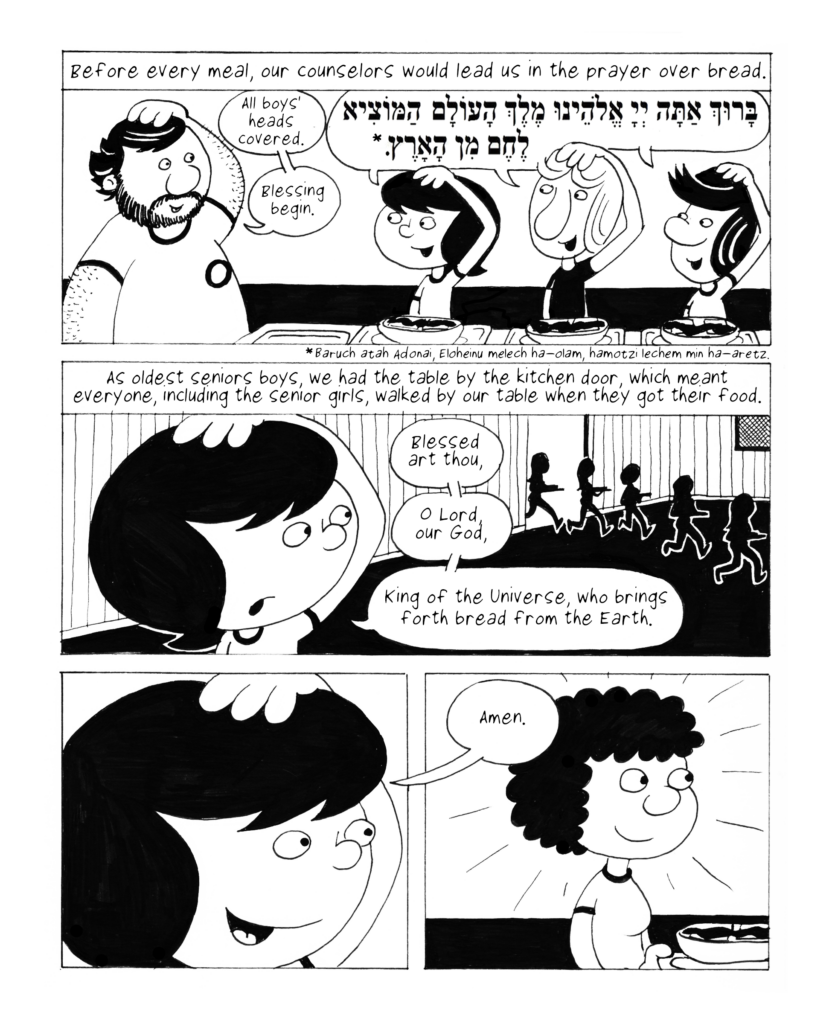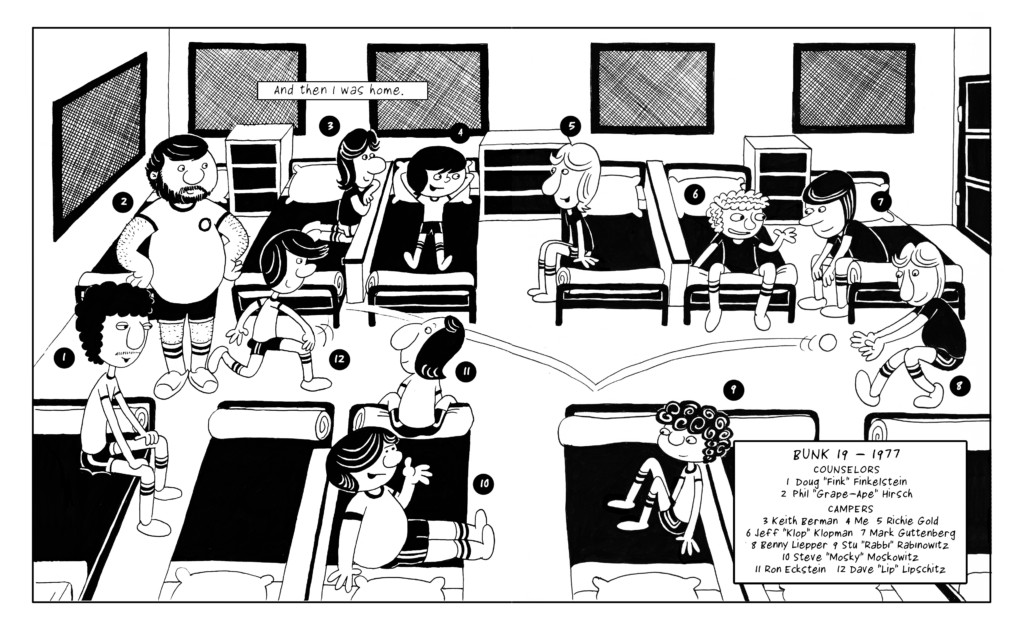Sleep-away camp nostalgia comes to comics
The graphic novel ‘Camp Pock-a-Wocknee’ recalls one epic Jewish summer

Graphic by Angelie Zaslavsky
Going to Jewish sleep-away camp has long been a rite of passage, but few artists this side of Allan Sherman have paid it much mind.
While Wet Hot American Summer did a fine job reveling in the unsupervised eight weeks so many of us savored, we never did see those campers saying hamotzi. Nor did the film or Netflix series care to give a name to the phenomenon graphic novelist Eric Glickman calls the “Jewlusion” of camp, which makes young Jews appear to be prodigiously gifted in ways athletic and romantic while away from their gentile peers.
Glickman’s first graphic novel, Camp Pock-A-Wocknee and the Dyn-O-Mite Summer of ‘77, inspired by his bug juice-splattered youth, will hit a rich vein of nostalgia for many who miss the halcyon days of color wars and canteen. And, if the trend of adult Jewish summer camps is any indication, there’s a lot of people looking to relive that experience. (Maybe it’s no accident Glickman has a background in advertising.)
While the book follows 15-year-old protagonist Glick, a helpful warning on the cover alerts the buyer this is “NOT a book for kids.” And that’s not just because the many, helpfully annotated, ’70s references will resonate best with readers of a certain age.

Glickman’s comic book alter ego sets us up for raunchy expectation with his early goal: to touch a breast. Yet even as the innuendo accumulates, and the camp director’s testicle is glimpsed bobbing from his shorts at a meeting with campers, the portrait of Pock-a-Wocknee is fundamentally sweet.
As Glick walks us through the camp economy (a can of Coke is the coin of the realm); the urban legends (a chef rumored to be ex-Hitler youth and a mysterious stalker in a hunter-green poncho); and the summer schedule (visiting day, camp pageants, the requisite carnival), any former camper will find something to recognize — if not get a bit misty over. I found myself transported even by the crosshatched screen windows Glickman put on the page.
Cleverly constructed with a cute love story at its center, Camp Pock-a-Wocknee is for the camper who never quite grew up. Rest assured that there’s plenty of gross-out humor and a fratty emphasis on rounding sexual bases, but I’d imagine no less so than one can find at the boys’ bunks of today.
If you were missing some more overt Yiddishkeit in your last viewing of Meatballs, Camp Pock-a-Wocknee is a charming way to get your fix. Nothing can ever recapture the magic of mosquito-bitten youth, but Glickman comes close, and that alone is worth canteen privileges.

























